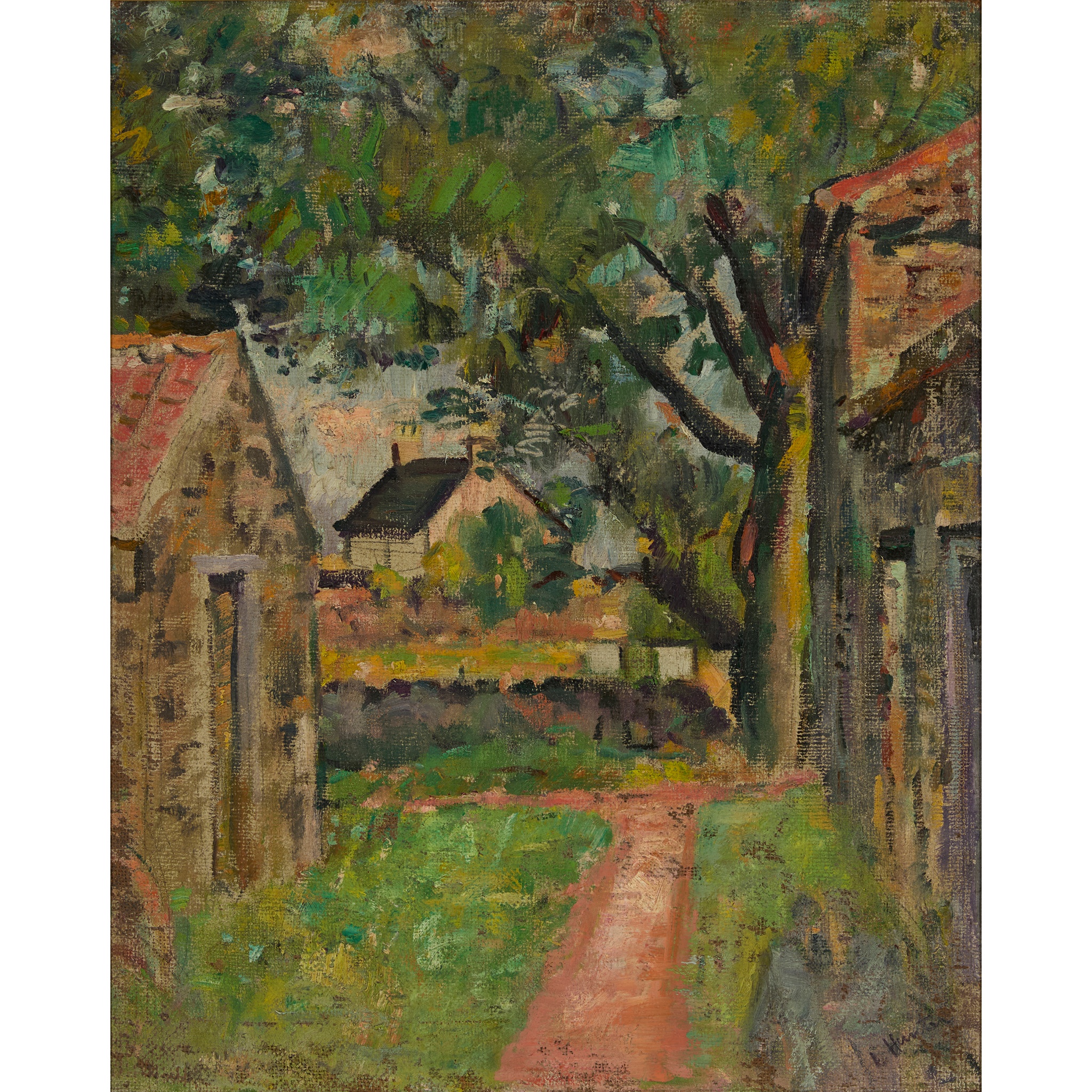GEORGE LESLIE HUNTER (SCOTTISH 1877-1931)
PATH THROUGH THE VILLAGE, FIFE
£18,900
Scottish Paintings & Sculpture
Auction: Evening Sale | Lots 103-196 | Thursday 05 December from 6pm
Description
Signed, oil on canvas
Dimensions
63,5cm x 51cm (25in x 20in)
Provenance
Sotheby's Hopetoun House, Scottish Pictures 19th April 2004, lot 72
Footnote
Between 1919 and 1926, Hunter spent part of each spring and summer in Fife in eastern Scotland, which is bordered by the Firth of Tay, the Firth of Forth and the North Sea. As Bill Smith and Jill Marriner have written: ‘He came upon an important source of inspiration through his fortuitous discovery of Fife and the possibilities inherent in its colourful landscape and rural architecture…it opened up a whole new realm of possibilities for Hunter. Subsequently he would go to Fife in any season. It was there that he made the break to paint en plein air. The artistic ground he gained as a result marked an important turning point in his development in terms of modern colour.’ (Bill Smith and Jill Marriner, Hunter Revisited: The Life and Art of Leslie Hunter, Atelier Books, Edinburgh, 2011, p.79)
Favoured locations in which to paint coastal and rural scenes included the villages of Lower Largo, Drumeldrie and Ceres. Whilst it is not known what drew Hunter to the area in the first place, Derek Ogston has explained that ‘the light, the ever-changing hues of the sea and the varied colours of its lime-washed houses with their red pantiled roofs are likely to have been an attraction. It is a part of Scotland that has provided scenic material for generations of artists and continues to attract painters.’ (Derek Ogston, The Life and Work of George Leslie Hunter 1877-1931, Baillieknowe Publishing, Kelso, 2002, p.68)
Red-pantiled Cottages, Fife has a charming focus on the distinctive architecture of Fife, affording an oblique view of a typically modest cottage. A painterly technique stresses the rhythm of the titular roof tiles, as well as the leaves and branches of the carefully tended plants and trees around it. Hunter presents an idyllic scene of country life, realised on an intimate panel measuring 14 x 10 inches.
Path through the Village, Fife is a more expansive view in which picturesque low-rise stone buildings frame a view along a footpath. There is a sense of unseen people living in harmony with nature, under the shade provided by ancient trees and with hints of space and light beyond. Hunter’s palette, based on shades of green and brown, speaks of the fecundity of the area and a benign climate.
Hunter is as readily associated with Fife as his fellow Scottish Colourists Cadell and Peploe are with Iona, as all three painters delighted in and honoured the landscape of their country of birth.

